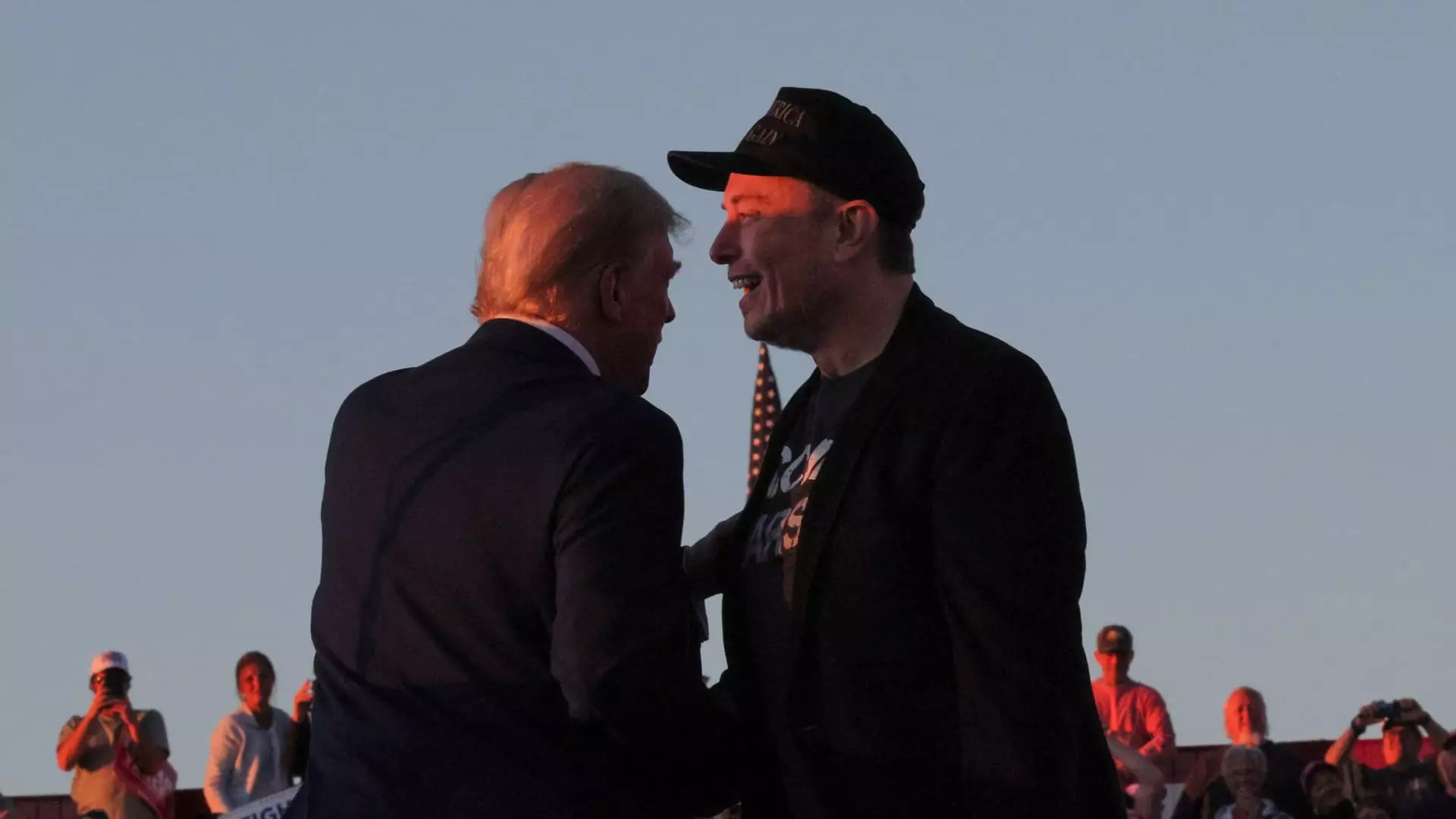In the lead-up to Tesla’s quarterly earnings report, a shadow looms over the company’s anticipated financial outcomes. This shadow is cast not by market conditions or competitive pressures but by the very political engagements of its CEO, Elon Musk. As the tech titan embodies a slew of high-profile roles—from running Tesla and SpaceX to spearheading xAI and Neuralink—his public stance on contentious political issues, especially surrounding the figure of Donald Trump, is stirring growing unease among investors.
As Tesla seeks input from its shareholders through online forums before its earnings calls, many voices have risen with a unified concern: Musk’s political rhetoric. A striking number of retail investors voiced their apprehensions regarding how his engagement in political discourse may conflict with the interests of the company and its shareholders. One particular inquiry that gained significant traction, receiving 168 votes, questioned how Tesla plans to mitigate any potential negative ramifications on sales and growth stemming from Musk’s activities. Moreover, another query, gathering 527 votes, pressed the Tesla board for assurance that Musk’s political forays would not undermine the integrity or mission of the brand.
The tension is palpable; while a CEO has the freedom to express political beliefs, there comes a mounting pressure to navigate these waters without jeopardizing the company’s financial health or user perception. For shareholders, this unique dichotomy represents a delicate balancing act that is becoming increasingly difficult to uphold.
As the world’s wealthiest individual, Musk’s ambitious reach extends beyond Tesla. He divides his time among several enterprises, including defense, social media, and AI. His multifarious roles have catalyzed a frenetic pace of public and political engagements. Notably, Musk’s recent efforts to propel Trump’s candidacy onward—a venture fueled by his belief in Trump’s capacity to streamline governmental operations—has sparked fascination and concern alike. His attempts to garner grassroots voter support by promising monetary rewards to registrars reveal a strategic intersection of politics and business aimed at promoting his favored candidate.
Such activities bring Musk into a quagmire where his political ambitions and corporate responsibilities may clash. His attempts to shepherd Trump back into the political arena not only draw attention but also raise questions about long-term implications on Tesla’s brand image and market performance.
While discussions around Musk’s political views may not be a staple at shareholder meetings or incorporated into Wall Street analysis, the financial ramifications of his outspoken stance are far from negligible. Gene Munster, a notable venture capitalist, has posited that Musk’s political commentary could have led to a reduction in Tesla deliveries by an estimated 5,000 to 10,000 units in the most recent quarter. This conclusion underscores the difficulty in measuring the indirect effects of political positioning on financial performance.
Moreover, a recent study by Interbrand revealed a troubling trend: Tesla’s brand value plummeted by 9% over the past year, positioning the company below prominent competitors such as Mercedes-Benz and Toyota. This decline highlights the growing need for Tesla to navigate potential market confusion provoked by Musk’s multifaceted projects while maintaining focus on its core automotive business. The lure of prioritizing ambitious tech projects over traditional products might be diluting the brand’s resonance in a crowded market, exacerbated by Musk’s polarizing public persona.
As Tesla prepares to unveil its third-quarter results, reflections on Musk’s expansive engagement in politics continue to swirl, creating a potentially volatile environment for both branding and stock performance. The critical need for Tesla’s leadership to delineate clear boundaries around Musk’s involvement in politics becomes more urgent. A failure to manage these perceptions could jeopardize user loyalty and, by extension, sales figures.
Ultimately, as Tesla strives to bridge innovation in electric vehicle technology while being swept into the turbulent currents of political discourse, the path ahead is fraught with challenges. Investors are right to remain vigilant, as the company grapples with its dual identity as a leader in technology and a participant in the unpredictable arena of political engagement. How well Tesla can stabilize itself amidst such external pressures may define not just its market position but also its broader cultural relevance in an increasingly polarized landscape.

